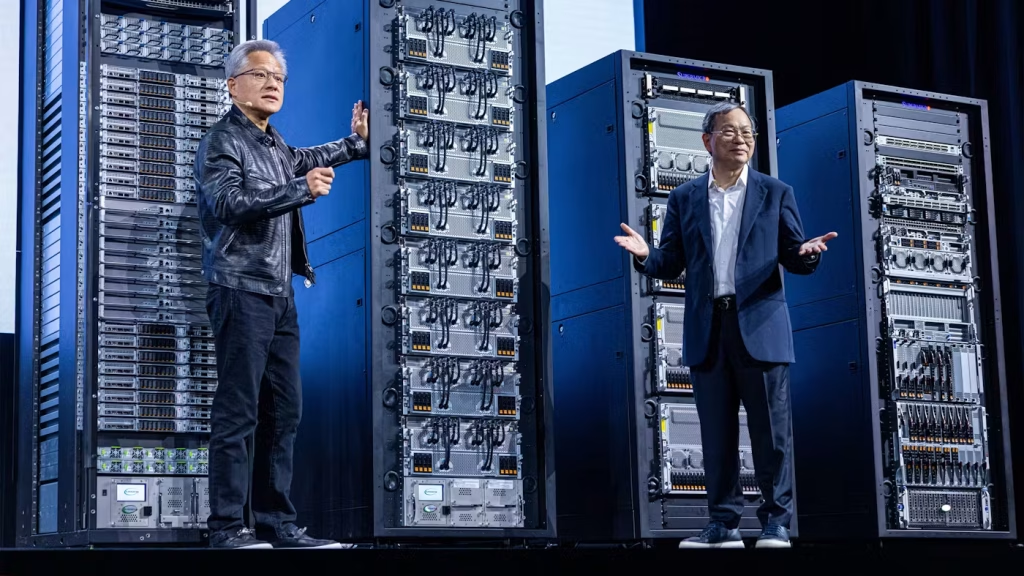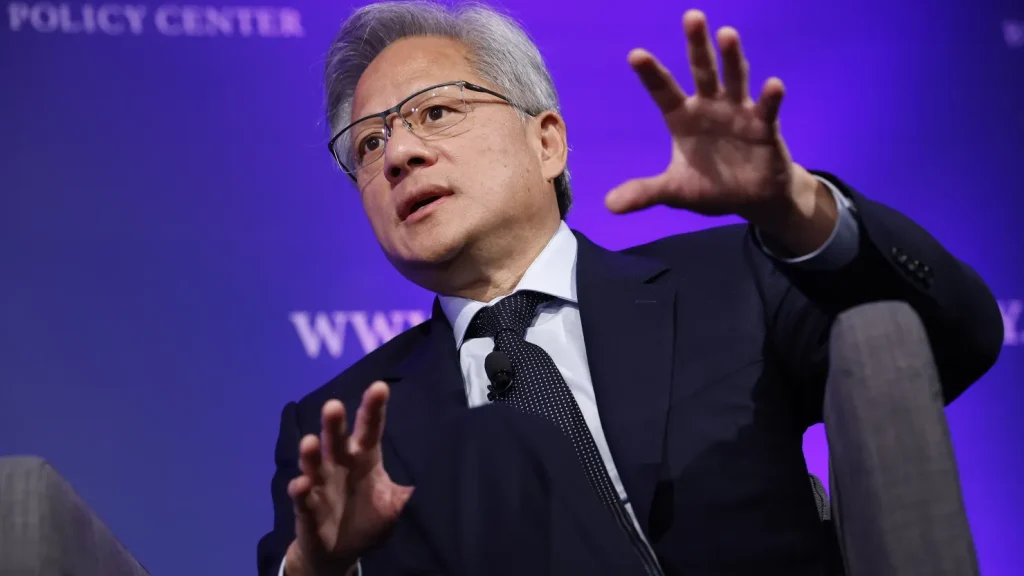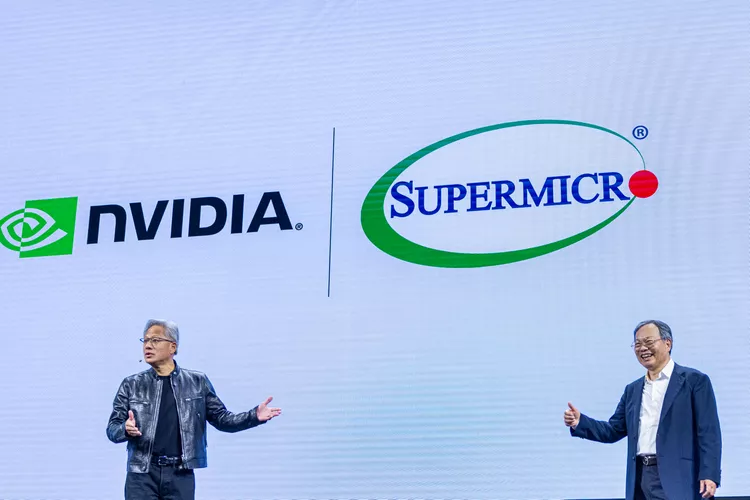U.S. Prompts Nvidia, Supermicro Probe Into How Chips Ended Up in China

The U.S. government has prompted investigations by major technology companies, including Nvidia and Supermicro, into how sensitive semiconductor chips ended up in China. This comes amid increasing concerns over national security, intellectual property theft, and the potential for these chips to be used for military or surveillance purposes by the Chinese government. The probe reflects ongoing tensions between the U.S. and China, particularly in the realm of technology and its implications for global power dynamics.
The Allegations
The issue began when the U.S. government became aware that certain advanced semiconductor chips, which were intended for other markets, had been shipped to China. These chips, produced by U.S. companies like Nvidia and Supermicro, are considered highly sensitive due to their powerful capabilities in computing, artificial intelligence, and data processing. The concern stems from the fact that these chips could potentially be reverse-engineered or misused in ways that undermine U.S. technological superiority or compromise national security.
The U.S. government’s scrutiny of these shipments is part of a broader strategy to limit China’s access to advanced technologies that could contribute to its growing military and surveillance capabilities. The U.S. has long been wary of China’s technological advancements, particularly in the fields of artificial intelligence, quantum computing, and military hardware. As tensions between the two countries have escalated, especially over trade, cybersecurity, and military presence in the Asia-Pacific region, the U.S. has increasingly focused on ensuring that China does not gain access to sensitive technologies that could be used against American interests.
Nvidia and Supermicro’s Response
Both Nvidia and Supermicro, two major players in the semiconductor industry, have initiated probes to understand how their products ended up in China. Nvidia, known for its graphics processing units (GPUs) and AI chips, has faced questions regarding whether its chips were diverted to China through unauthorized channels. Supermicro, which manufactures server hardware and components, has been similarly questioned about how its products, which contain advanced semiconductors, might have been misused.
In response to the allegations, both companies have assured the public and regulatory authorities that they are taking the matter seriously. Nvidia has stated that it is working closely with U.S. government agencies and conducting internal reviews to ensure that none of its chips have been misused. Similarly, Supermicro has pledged full cooperation with the investigation and is committed to ensuring that its products are used only for their intended purposes.
However, both companies are under pressure to explain how such shipments could have been made, especially given the strict regulations that govern the export of sensitive technology to countries like China. U.S. export control laws prohibit the sale of certain advanced technologies to China, especially when these products could be used for military or surveillance purposes. This has led to suspicions that these shipments might have been part of a larger network of illicit trade or through loopholes in the system.
The Bigger Picture: U.S.-China Tech Rivalry
The probe into Nvidia and Supermicro is not an isolated incident but rather part of the broader U.S.-China technological rivalry. Over the past decade, the U.S. and China have been engaged in a battle for supremacy in key technological sectors. The U.S. has been concerned about China’s rapid advancements in AI, semiconductor manufacturing, 5G networks, and other cutting-edge technologies. The fear is that China could eventually surpass the U.S. in technological capabilities, which would shift the global balance of power.
In response to this growing threat, the U.S. has implemented a series of measures designed to curb China’s access to advanced technology. These measures include tightening export controls on sensitive technologies, placing Chinese tech companies like Huawei on blacklists, and encouraging allies to limit China’s access to critical infrastructure, particularly in the areas of telecommunications and cloud computing. The goal is to prevent China from acquiring the tools needed to develop technologies that could potentially undermine U.S. global leadership.
The semiconductor industry is a key battleground in this rivalry. Semiconductors are often referred to as the “brains” of modern technology, powering everything from smartphones and computers to military equipment and surveillance systems. As such, control over semiconductor supply chains is a matter of strategic importance. The U.S. has long been the leader in semiconductor design and manufacturing, but China has been working to build its semiconductor industry and reduce its reliance on foreign suppliers.
The concerns raised by the discovery of chips in China are not just about potential economic loss or intellectual property theft; they also reflect broader security concerns. There are fears that the Chinese government could use these advanced chips to develop technologies that could enhance its surveillance capabilities or improve its military technology. For instance, AI-powered chips could be used to improve China’s facial recognition systems, which have already been deployed in various parts of the country for mass surveillance purposes.
Potential Implications
The U.S. probe into Nvidia and Supermicro’s involvement in the shipment of chips to China could have significant implications for both companies and the broader tech industry. If the investigation reveals that these chips were indeed diverted to unauthorized markets, it could result in sanctions or penalties for the companies involved. This could also prompt a re-evaluation of the existing export control regulations and lead to even stricter controls on technology sales to China.
Furthermore, the investigation could have a ripple effect throughout the global semiconductor supply chain. Other companies that manufacture or export semiconductors might come under increased scrutiny, and governments around the world could begin to impose tighter restrictions on technology exports to China. This could disrupt global trade and raise concerns about the future of international collaboration in technology development.
For China, the discovery of chips in the country that were potentially diverted in violation of U.S. export laws could lead to further diplomatic tensions between the two nations. It could also prompt the Chinese government to take more aggressive steps to develop its own semiconductor industry and reduce its reliance on foreign technologies. In recent years, China has made significant investments in its semiconductor industry, but it still lags behind the U.S. in terms of design and advanced manufacturing capabilities. The discovery of these chips could push China to accelerate its efforts to become self-sufficient in semiconductor production.
The investigation into how Nvidia and Supermicro’s chips ended up in China highlights the growing tensions between the U.S. and China over technology and national security. As both countries vie for dominance in critical technological sectors, issues of intellectual property theft, export controls, and military applications are becoming increasingly important. The probe into the unauthorized shipment of sensitive chips serves as a reminder of the strategic value of semiconductors and the lengths to which both nations are willing to go to protect their technological interests. The outcome of the investigation will likely have far-reaching consequences for U.S.-China relations and the future of global technology competition.






